
A week and a half ago, we traveled to mountainous Vancouver, Canada, to participate in the World AeroPress Championship finals. We’ve been the coffee sponsor and close supporter of this event for many years. Most recently, this has evolved into sourcing an offering alongside the WAC team to supply the competitors with a unique and versatile coffee to compete with. We sat on the judge’s panel this year, cupping through nearly fifty brews. The spectrum of flavor profiles, ranging from delicate to intense and bright to deep, was astonishing. It speaks to the versatility of coffee as an ingredient and the tools and talents of the champions – all reliant on the professionals who cultivated, harvested, and processed this coffee.
This year’s coffee was Cauca, Colombia’s Finca Juan Martin Red Striped Bourbon, one processed washed and one processed naturally at Manos Juntas micromill.
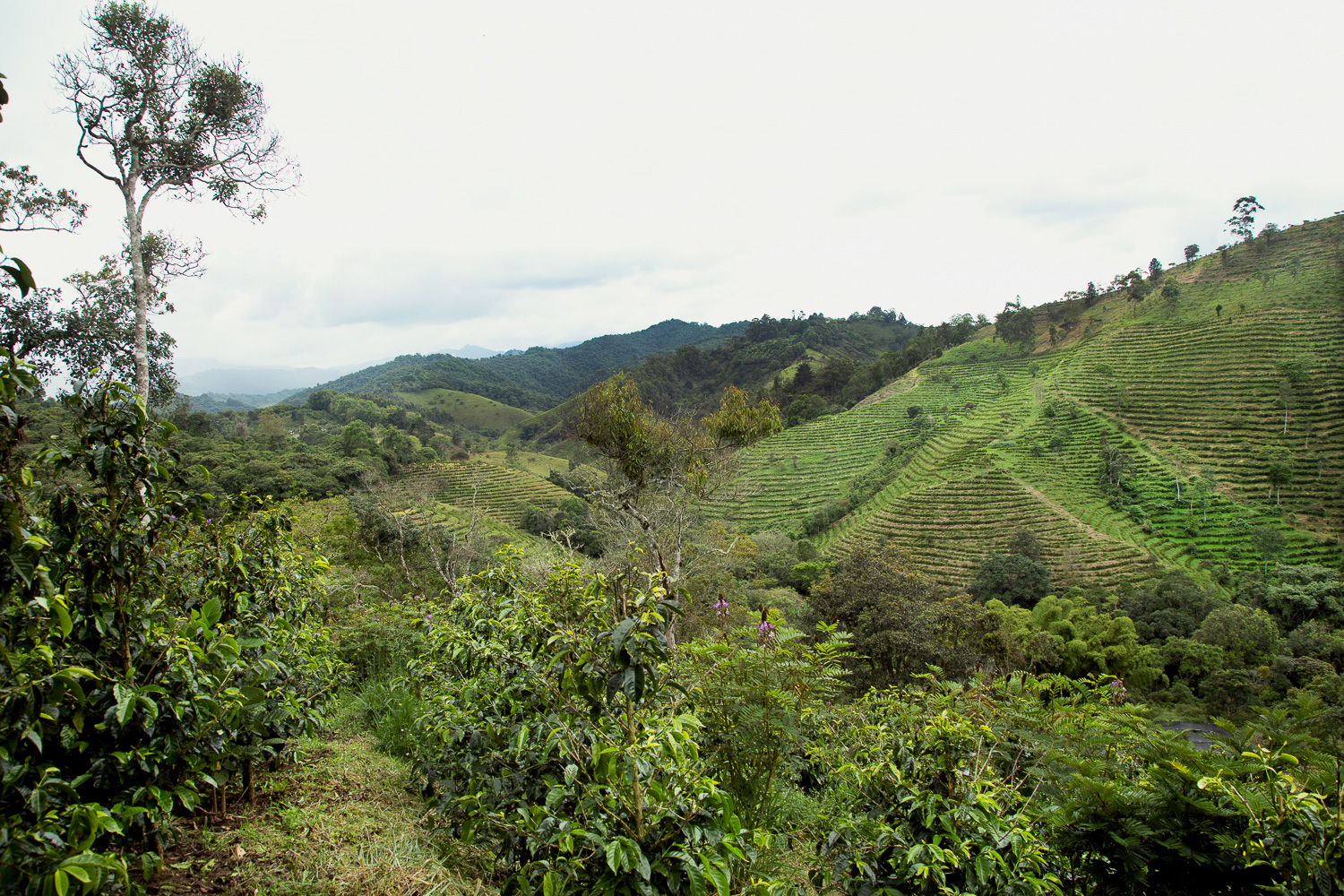
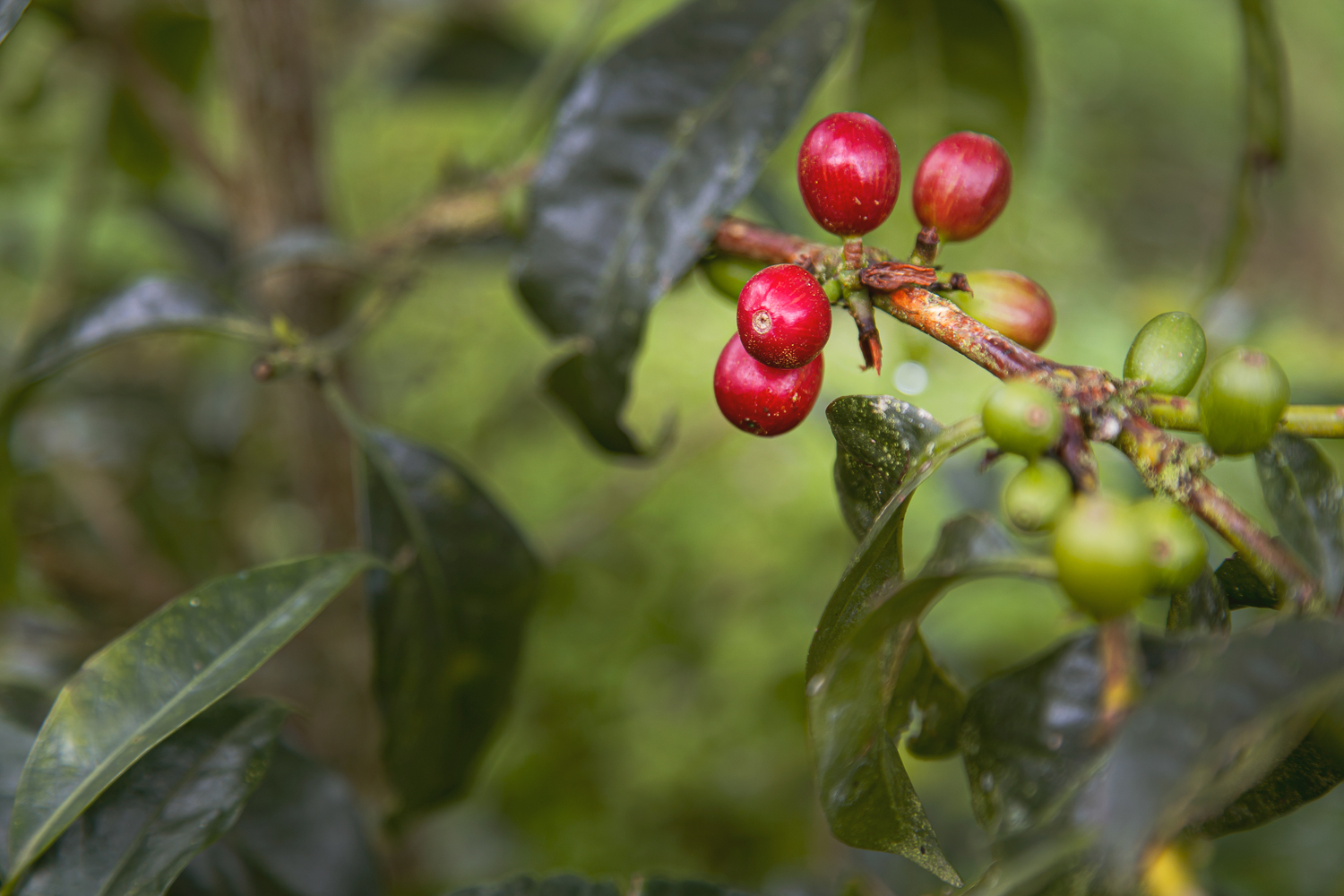
Finca Juan Martin and Manos Juntas are two different projects, both striving to make coffee production more profitable for producers and consistently delicious for consumers, all under the Banexport umbrella. Banexport is our longstanding partner and friend, sourcing and exporting many of our Cauca, Huila, and Nariño offerings. Their commitment to quality, sustainability, and economic equality for producers is exemplified in their projects, particularly Finca Juan Martin and Manos Juntas.
Modeling the future of specialty coffee in Colombia
Best described as a model farm, Finca Juan Martin aims to develop quality-focused cultivation techniques with eleven varieties and counting, ranging from traditional (Colombia f6, Castillo, Caturra), to recently discovered (Red Striped Bourbon), to famous (Gesha, Sidra, Pink Bourbon). This knowledge is offered to producers in Cauca freely. Employees are paid competitively with full benefits. These practices are guided by their mission of making coffee a viable career path for generations to come throughout Colombia. When you purchase coffee from Finca Juan Martin, you support a competition-level farm that passes on its techniques to producers throughout Cauca.
We recently received fresh shipments from this project, available now in Minneapolis, including Red Striped Bourbon, Pink Bourbon, Sidra, Gesha, Arara, and Harrar.
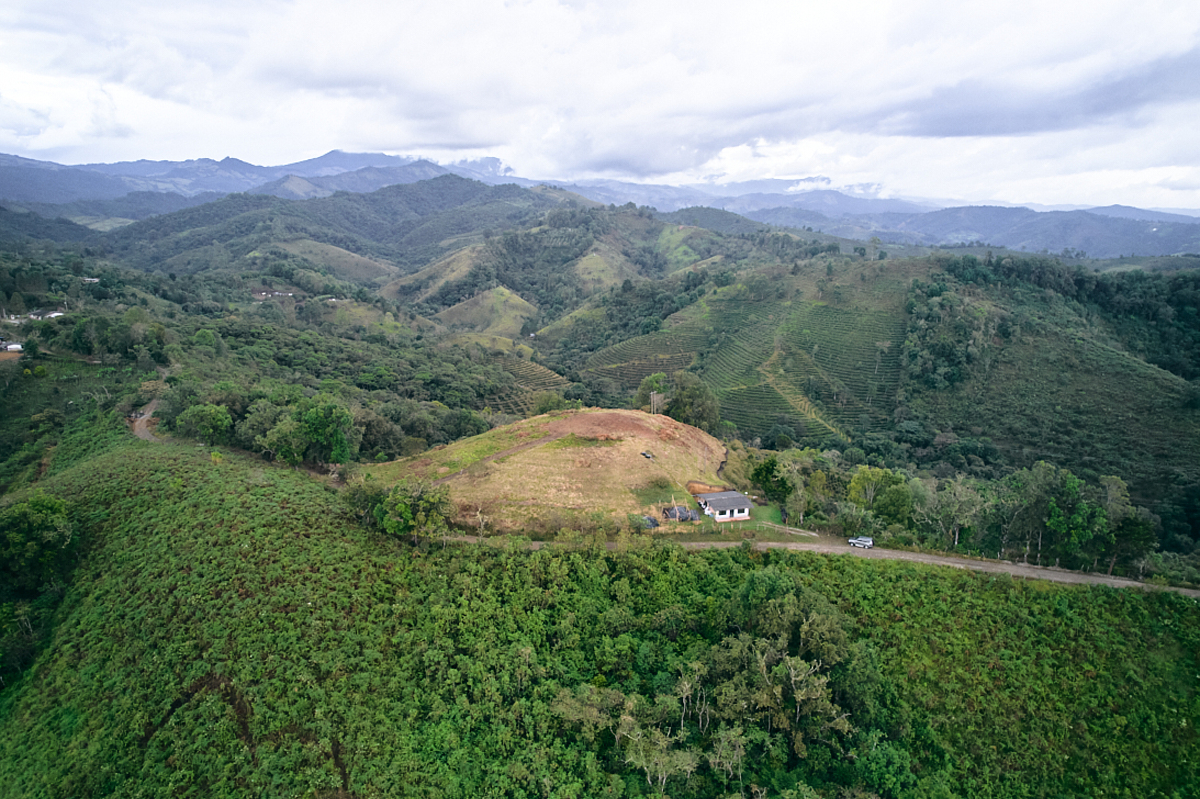
After the coffee is hand-harvested and sorted, the lots travel 25 miles from Sotara to Banexport’s micromill, Manos Juntas, in Popayan.
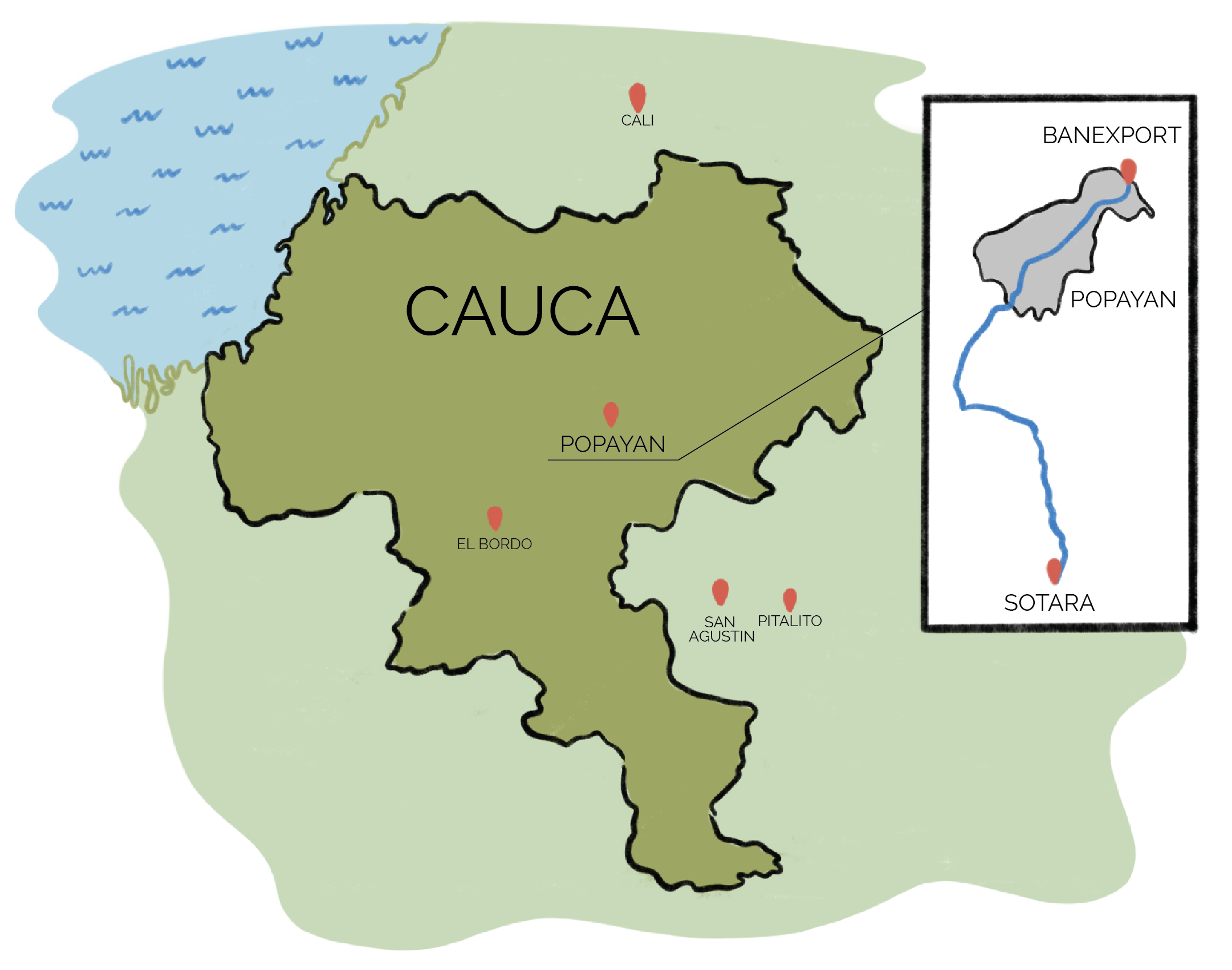
Responsible, sustainable, and scientifically informed coffee processing
Manos Juntas is a micromill – a private, small-scale wet and dry mill. All of Finca Juan Martin’s coffee is processed at Manos Juntas. More importantly, though, Manos Juntas purchases cherry from over 60 producers throughout Cauca and Huila, paying them more expeditiously while taking on the risk of finishing and selling the coffee. Their process is forward-thinking, seeking solutions for many of coffee’s production problems.
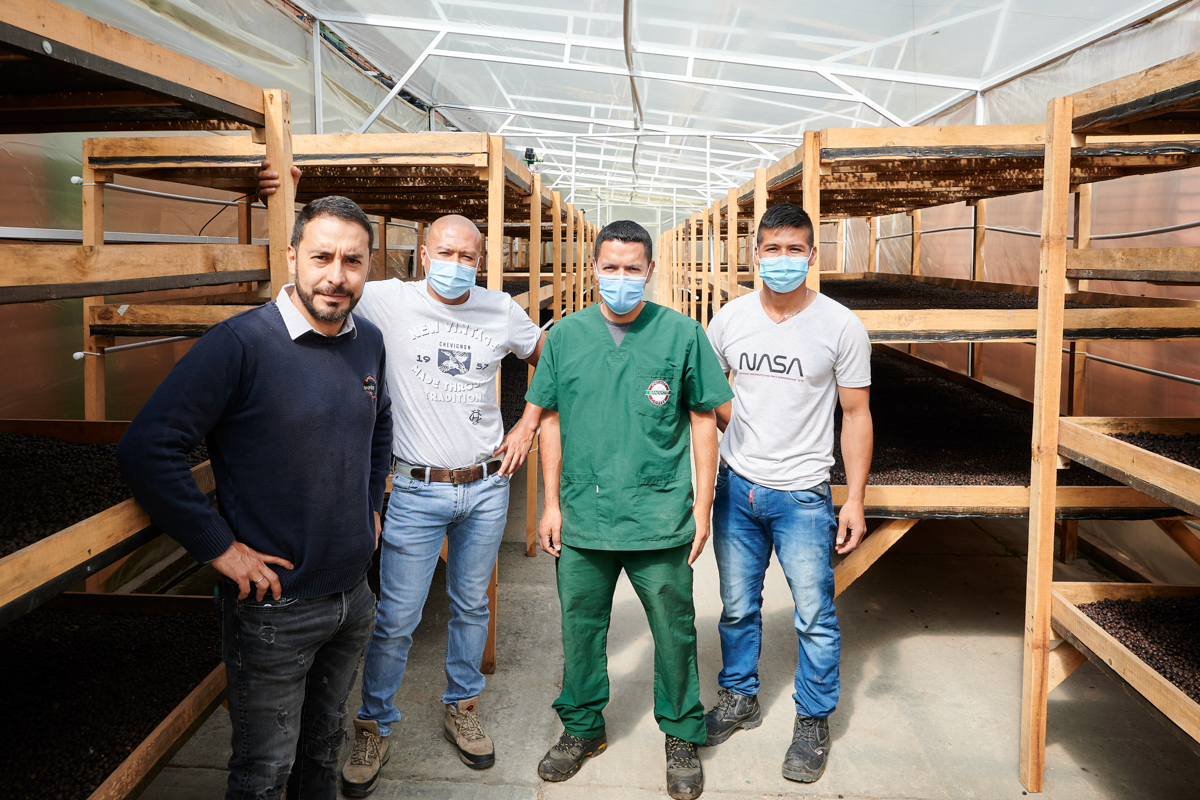
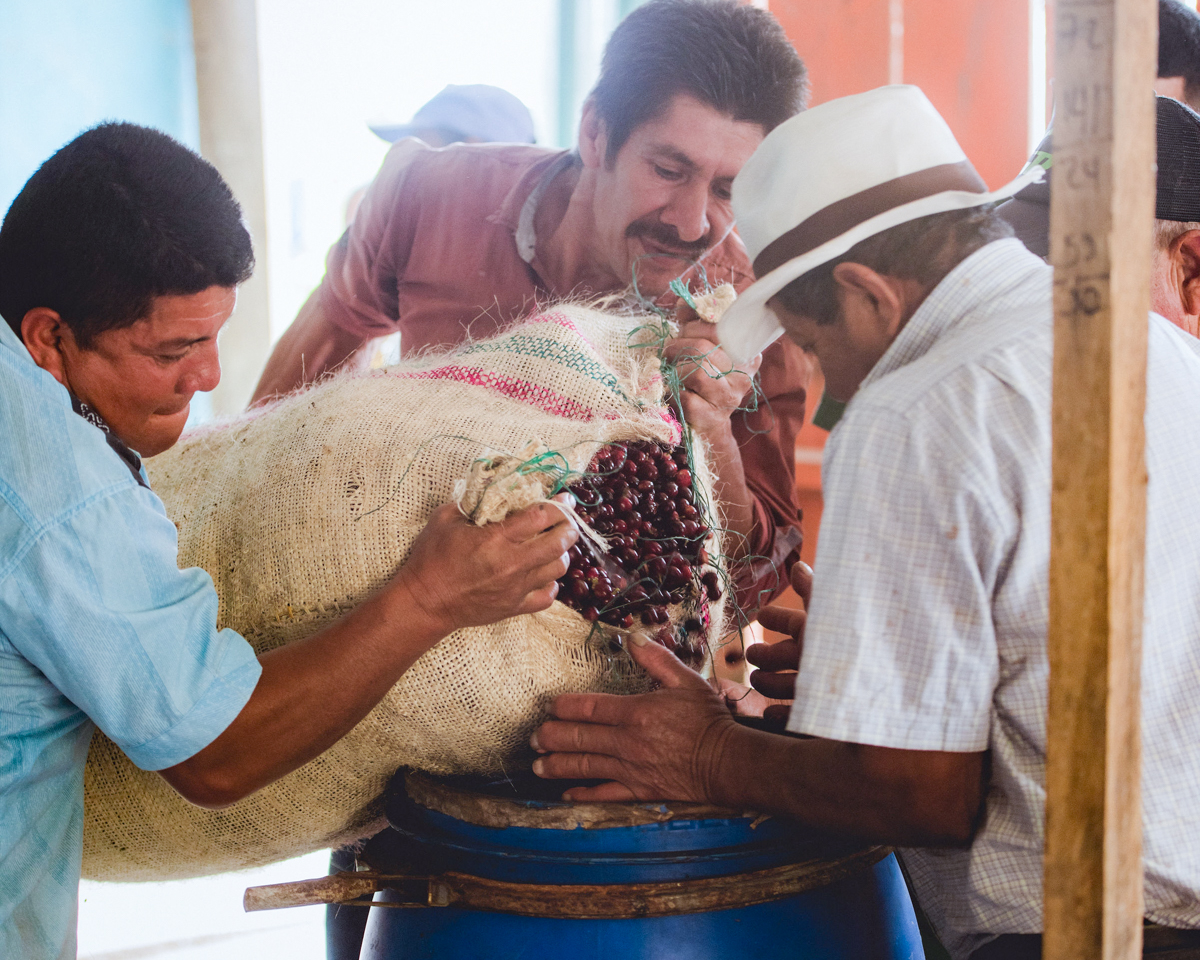
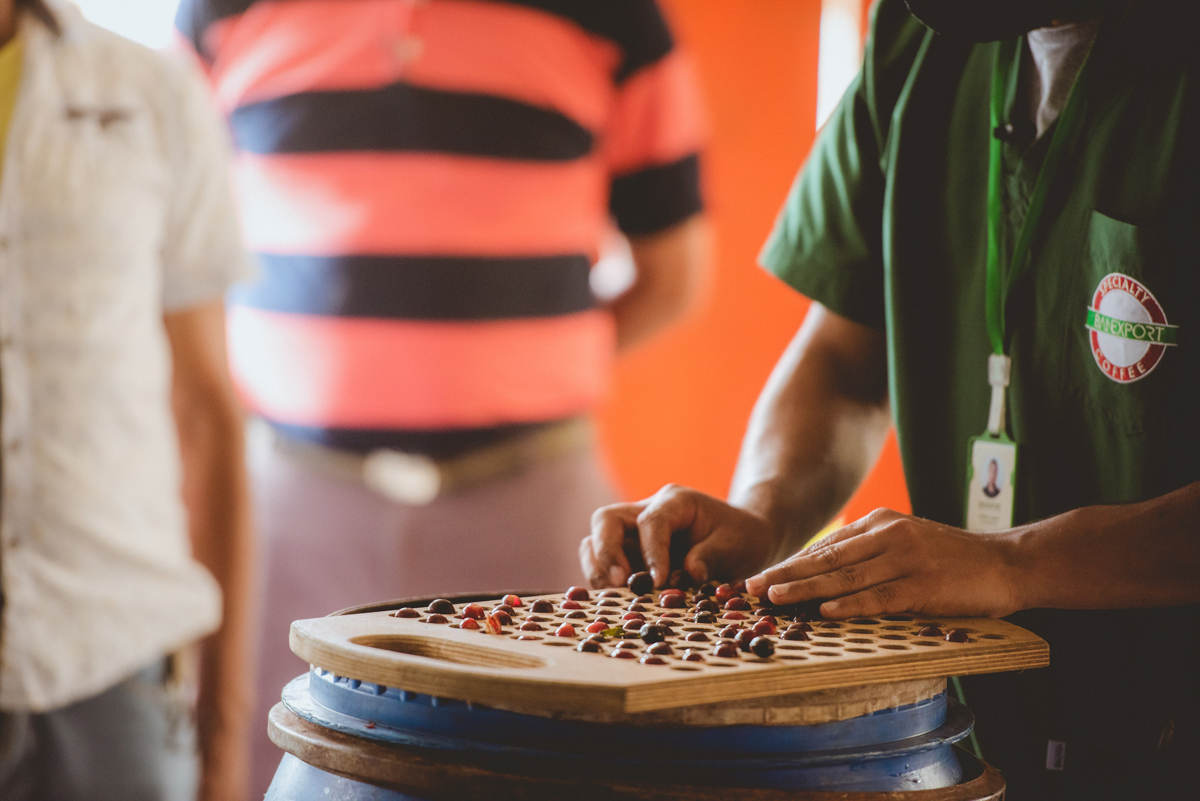
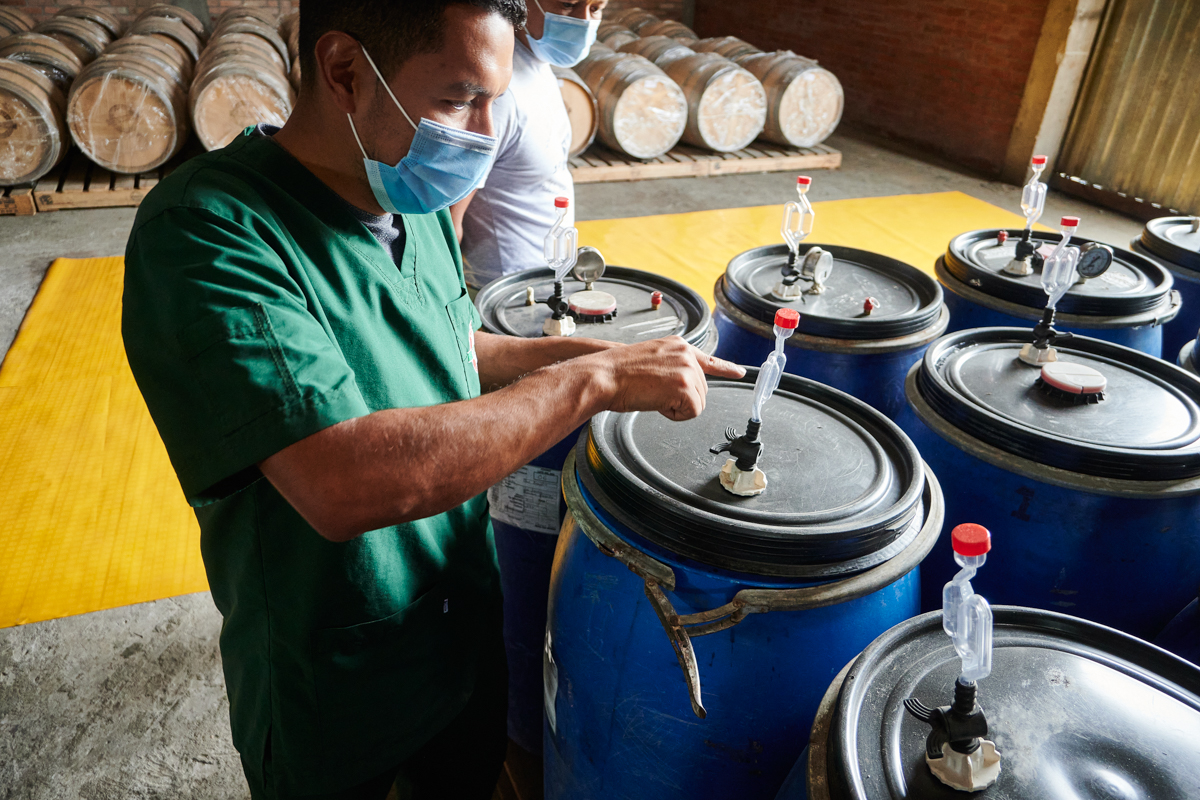
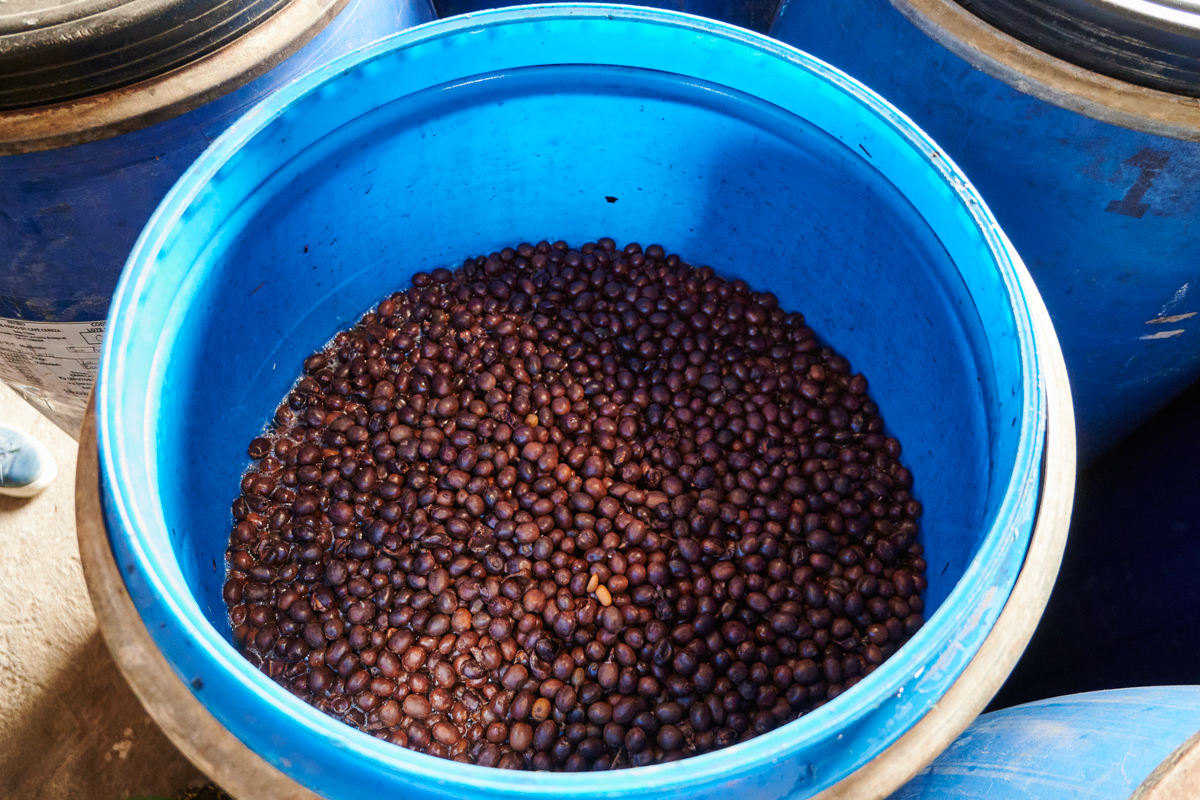
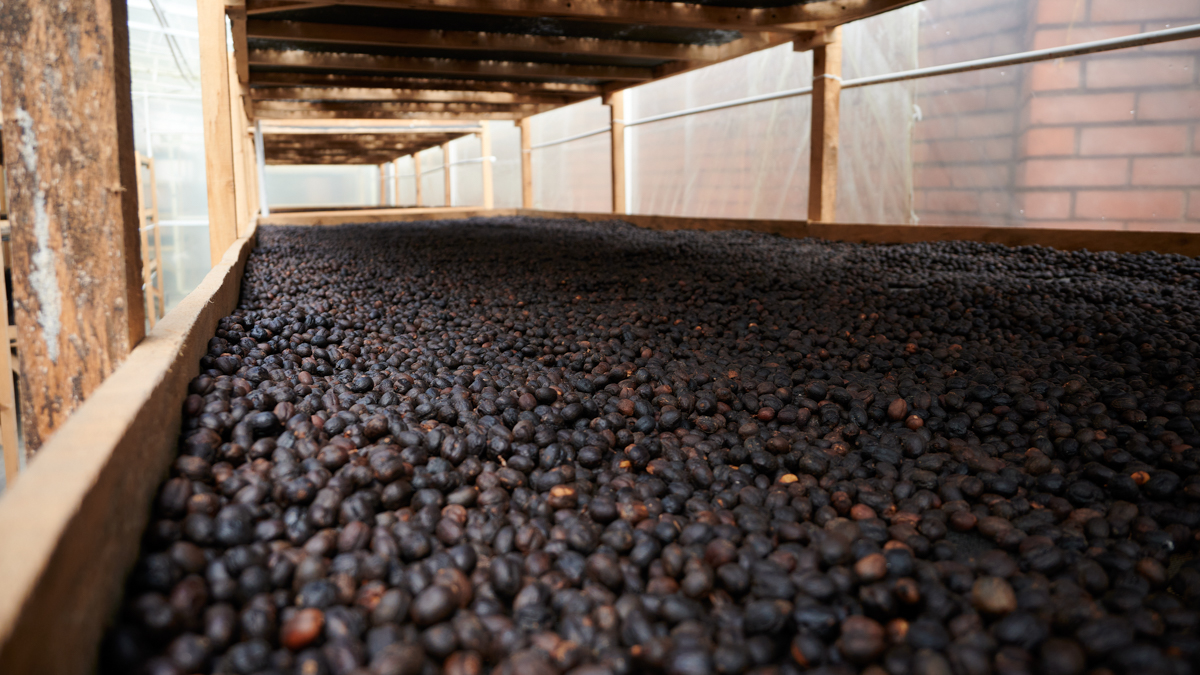
Purchasing Manos Juntas offerings allows this project to continue to grow in its capacity to innovate and serve more producers in an effort to raise the floor of coffee prices throughout Colombia. These coffees are beautifully consistent and improve year after year.
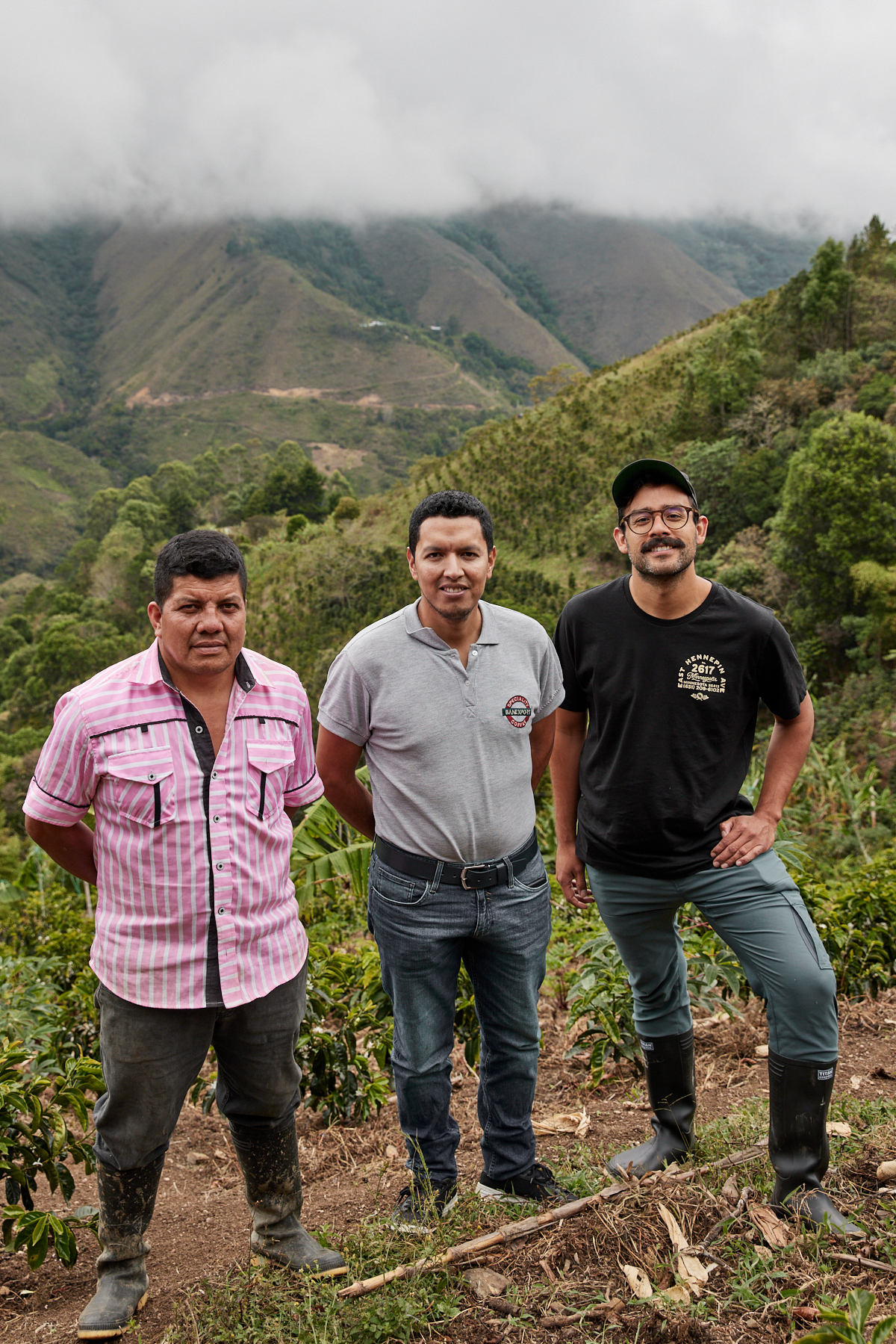
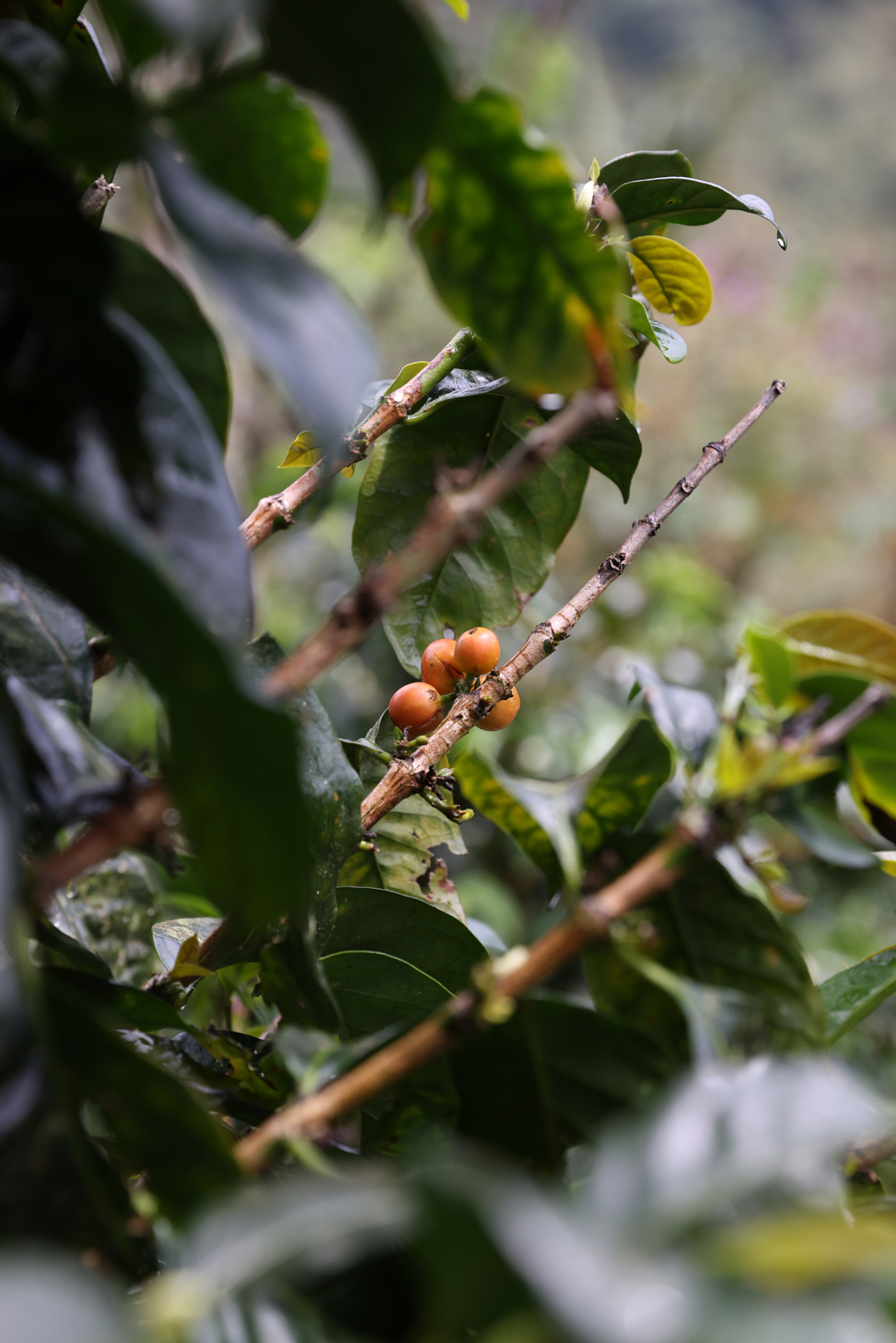
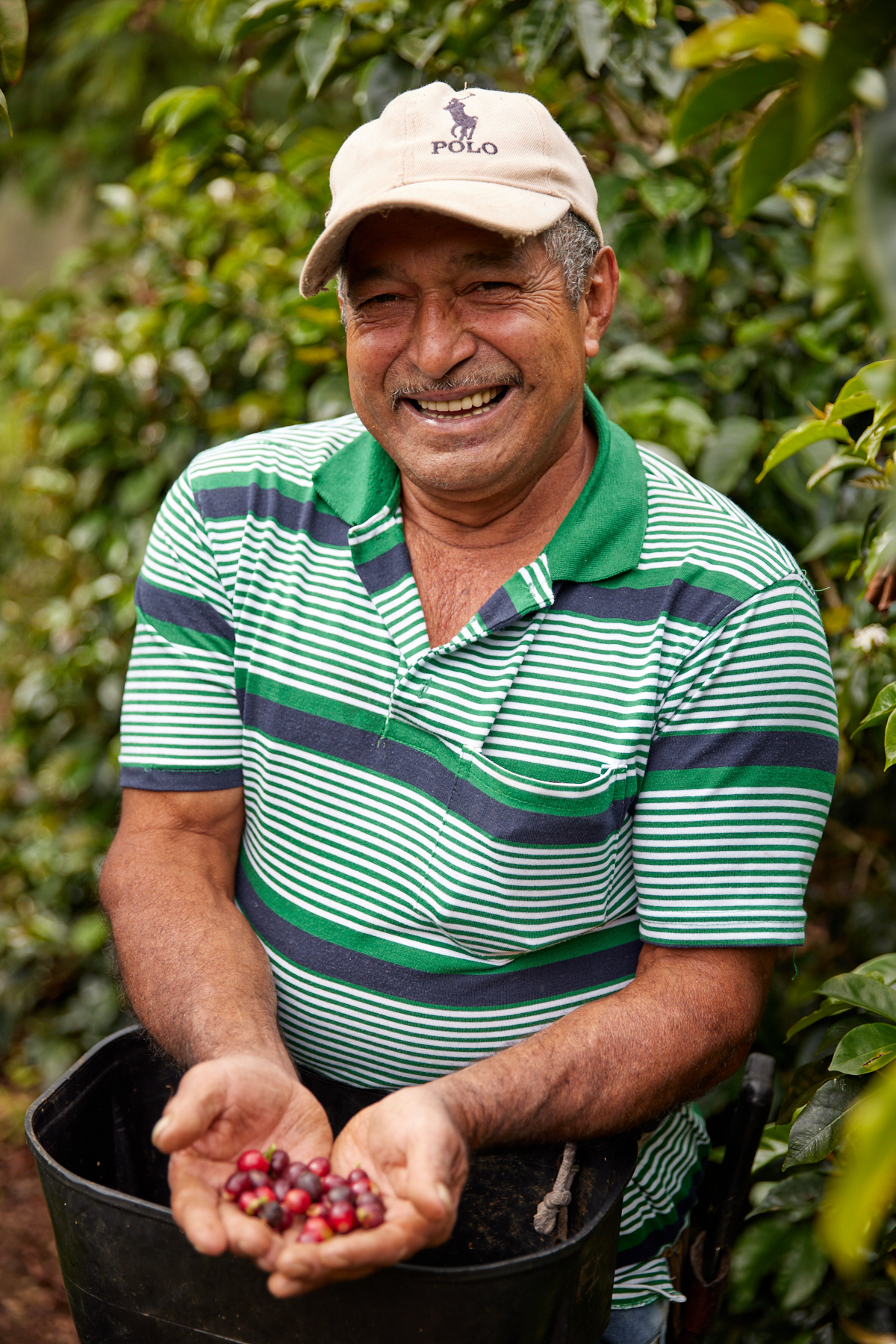
This is a long one, folks, but we are passionate about these projects.
It’s why we continually partner with people like Banexport. Prioritizing honesty, responsibility for the environment, and creating a sustainable path for producers is more important than ever. These two projects provide us with incredible coffees, yes. They also fight for the future of coffee in the face of climate change and economic instability so that the livelihood of all in the production chain is recognized as valuable – so that we might enjoy a morning cup that isn’t at the expense of others but creates more opportunity and potential for others.